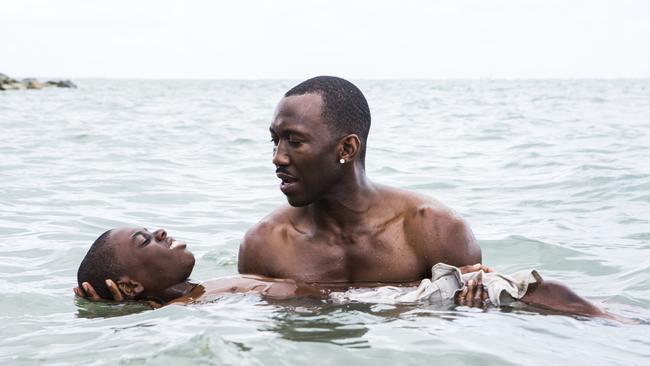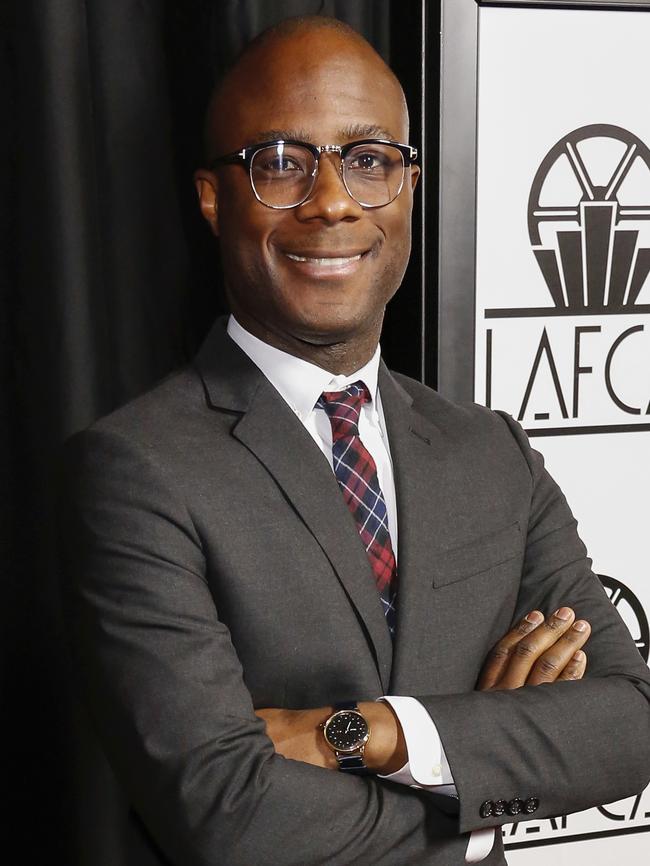Moonlight: Barry Jenkins’ film goes beyond the expected
Barry Jenkin’s Moonlight is a work full of questions and ambiguities that avoids the usual Hollywood stereotypes.

‘I would never try to subdue that beauty,” says Barry Jenkins. “To me that would have been immoral.” He’s talking about the grace, lushness and yearning at the heart of Moonlight — a beauty that people don’t necessarily expect to find in the world of the film.
The remarkable, heartbreaking Moonlight (which won a Golden Globe for best drama) was adapted by Jenkins from a script by playwright Tarell Alvin McCraney.
Jenkins jokingly adopts the earnest tone of a trailer voiceover to describe what is ostensibly the subject matter of Moonlight: “A young black boy growing up in poverty, with a mom addicted to drugs, struggling with his sexuality.” This kind of story, he says, usually comes with a set of aesthetic expectations imposed on it. “You think of handheld, of a drab sort of film.”

Yet the movie embraces something entirely different and much richer. Miami, where Jenkins and McCraney grew up, “has always been a beautiful place to us, an achingly gorgeous place” where hardship and beauty coexist. “Rather than it seeming like those things clash, for me they’ve always been at the root of who I am. I’ve always felt they go hand in hand.”
And, he adds, there’s always beauty to be found in the everyday.
There are specifically autobiographical elements in McCraney’s script, In Moonlight Black Boys Look Blue, written in 2003. Yet it also had personal resonances for Jenkins; he and McCraney grew up in similarly harsh circumstances and in proximity, although they never met.
The central figure in Moonlight is Chiron, whose life is presented to us in three chapters, each introduced by the name he is known by at that point. Three stages of a life, across decades, embodied by three different actors: a 10-year-old boy nicknamed Little (Alex Hibbert), isolated and bullied; a long-limbed, watchful adolescent, Chiron (Ashton Sanders); and a powerful, solitary adult known as Black (Trevante Rhodes).
With all their differences, there’s an undeniable sense of continuity between the three incarnations of Chiron. “Part of it I chalk up to our casting director [Yesi Ramirez], who did such a great job to help us find these young men who had what I would call the same sort of spiritual essence, in a certain way.”
Jenkins didn’t want the actors to try to find common ground in their performances, however. “I didn’t allow them to rehearse together or meet each other, but I did give them all the full script. I thought they should at least all know where the character came from and was going to.” He was able to introduce subtle ways of making connections, through things such as framing and gesture.
Three different actors (Jaden Piner, Jharrel Jerome and Andre Holland) play Kevin, whose relationship with Chiron plays a significant role in each chapter. English actress Naomie Harris appears as Chiron’s troubled mother, Paula, a figure drawn sharply but without judgment.
And then there’s Juan (Mahershala Ali), a neighbourhood drug dealer who animates Moonlight’s opening chapter.
Juan notices that young Chiron is being chased and bullied, and he seeks him out. Before long, the usually taciturn boy feels ready to bring up a term that has been tauntingly bestowed on him. “What’s a faggot?” Chiron says.
There’s a moment of silence, but Juan has an answer for him, a response that is measured, thoughtful and open.
Jenkins says he loves the way The New Yorker’s Hilton Als wrote about this moment in a passionate appreciation of the film. According to Als: “ Juan doesn’t grab a gun and try to blow the slandering universe away. Instead, he takes the word apart, and doesn’t take Chiron apart with it.”
Chiron continues to be bedevilled by the confining power of names, definitions and expectations. And Juan’s answer does not imply resolution: Moonlight is a work full of questions and ambiguities. Yet his response subverts the usual stereotypes, Jenkins says, “of what we assume a black drug dealer will and can say”. People assume “that a black drug dealer is not a brother, a father, a son, an uncle. They think that a black drug dealer is only a black drug dealer.”
He’s not making a rhetorical point, Jenkins adds. “This whole piece originates because of a real friendship, a real paternal relationship that Tarell McCraney had with a local drug dealer who took him under his wing.”
There’s a striking scene in which Juan takes young Chiron to the beach to teach to him to swim, a sequence that feels tender, paternal, baptismal. The sea and the shore are important locations in the film, places of physical connection, desire and sensual possibility.
Moonlight is Jenkins’ second feature. After high school in Miami, he studied literature and film at Florida State University; Moonlight’s producer, Adele Romanski, and its cinematographer, James Laxton, are friends from this time. At one point, feeling a little overwhelmed, Jenkins took a year off film school, devoted himself to exploring the foreign-language section of the local video store, and returned renewed. He made his first feature, Medicine for Melancholy, in 2009.
His favourite filmmaker is French director Claire Denis (Beau Travail). He begins to talk about an interest he has in common with her, then pulls back, saying: “I would never compare myself to Claire, I’ve got to do this for another 30 years before I can even touch her.”
He got the idea for Moonlight’s three-part structure from a favourite movie, Taiwanese director Hou Hsiao-hsien’s Three Times, although he has taken it in a very different direction. Another influence, he says, was a Paris Review interview with Norwegian filmmaker Joachim Trier (Louder Than Bombs) in which he talked about the difference between film and literary narrative, and the possibilities for cinema to explore and depict the nature of consciousness and interiority. “Between that, and borrowing a structure from Hou, I thought, there’s something we can do here. It’s going to require an active audience, but it always felt like the right thing to do.”
Your influences don’t necessarily become your aesthetic, he says. There is a direct homage to Wong Kar-wai’s Happy Together in Moonlight, but Denis’s influence is more indirect. “It’s going to be filtered through the actual story I’m telling, and not look like Claire’s work, but there’s no doubt that Claire’s work will somehow be in those images.”
Influences can come in many forms, Jenkins adds: some of it nourishing, some of it the equivalent of junk food. “The 15-second ads on our phones, the commercials we watch on TV — imagery gets into us, no doubt about it.”
In Moonlight, the nature of sexual identity is shifting yet precisely evoked. That aspect of the film, Jenkins says, “that’s all respect to Mr McCraney and the wonderful job he did in building a character who was in some ways fluid, but in many ways rooted in the central question: who is he?”
In thinking about that question, an active viewer, Jenkins says, is likely to reflect on the use of time in the final section of the film. After the major temporal shifts from chapter to chapter, the last 20 minutes are “functioning in real time. So the progression or the evolution that the character is going through is still very much in process when the film ends.
“But I do think that, whoever he is, it’s going to be self-defined; it’s not going to be decided by the world at large.”
Moonlight opens on Thursday.



To join the conversation, please log in. Don't have an account? Register
Join the conversation, you are commenting as Logout